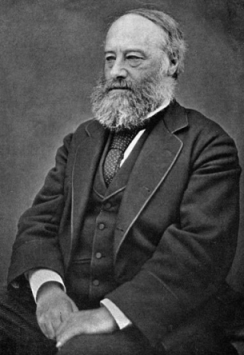Skip to comments.
How Christianity and Science Can Interact (bio info on James Joule)
Proslogion ^
| 4-25-16
| Dr. Jay L. Wile
Posted on 04/26/2016 8:20:00 AM PDT by fishtank
How Christianity and Science Can Interact
Apr. 25, 2016
Over the past few years, I have been writing a series of elementary science courses for home educated students. Since the courses discuss scientific concepts in chronological order, I have spent a lot of time learning the history of science. In the process, I have found that a lot of what I was taught in school (including university) about how science developed is simply false. I have also become acquainted with the views of many great scientists from the past, which has allowed me to learn from them. I want to discuss one of those great scientists in order to share something I have learned. James Joule was born in 1818. Because his father was a successful brewer, chemistry was in his blood. He was taught at home for many years, and then his father sent him to study under John Dalton, the founder of modern atomic theory. Dalton suffered a stroke two years later, but his influence on Joule continued long after he stopped teaching. Even though Joule ended up taking over the family brewery, he spent a lot of time doing experiments, mostly focused on trying to explain electricity and magnetism in terms of Dalton’s new atomic theory.
(Excerpt) Read more at blog.drwile.com ...
TOPICS: Culture/Society; Philosophy
KEYWORDS: creation; joule

Quote by James Joule:
"After the knowledge of, and obedience to, the will of God,
the next aim must be to know something of His attributes of wisdom,
power and goodness as evidenced by his handiwork…
It is evident that an acquaintance with natural laws
means no less than an acquaintanceship
with the mind of God therein expressed."
1
posted on
04/26/2016 8:20:00 AM PDT
by
fishtank
To: fishtank
Democritus (”chosen of the people”) was an Ancient Greek philosopher born in Abdera, Thrace, Greece. He was an influential pre-Socratic philosopher who formulated an atomic theory for the cosmos. His exact contributions are difficult to disentangle from his mentor Leucippus, as they are often mentioned together in texts. Their hypothesis on atoms is remarkably similar to modern science’s understanding of atomic structure, and avoided many of the errors of their contemporaries. Largely ignored in Athens, Democritus was nevertheless well-known to his fellow northern-born philosopher Aristotle. Plato is said to have disliked him so much that he wished all his books burnt. Many consider Democritus to be the “father of modern science”.
Eeek! A Greek.
2
posted on
04/26/2016 8:30:23 AM PDT
by
tumblindice
(America's founding fathers: all armed conservatives.)
To: tumblindice
Modern science first flourished under a Christian world view
The historical basis of modern science depended on the assumption that the universe was made by a rational Creator
An orderly universe makes perfect sense only if it were made by an orderly Creator
4
posted on
04/26/2016 10:25:36 AM PDT
by
zeugma
(Woohoo! It looks like I'll get to vote for an abrasive clown for president!)
To: impactplayer
Yep. Which is why modern science was IMPOSSIBLE in pagan Greece, Rome, China, Islam, etc etc.
5
posted on
04/26/2016 10:41:59 AM PDT
by
fishtank
(The denial of original sin is the root of liberalism.)
Disclaimer:
Opinions posted on Free Republic are those of the individual
posters and do not necessarily represent the opinion of Free Republic or its
management. All materials posted herein are protected by copyright law and the
exemption for fair use of copyrighted works.
FreeRepublic.com is powered by software copyright 2000-2008 John Robinson
